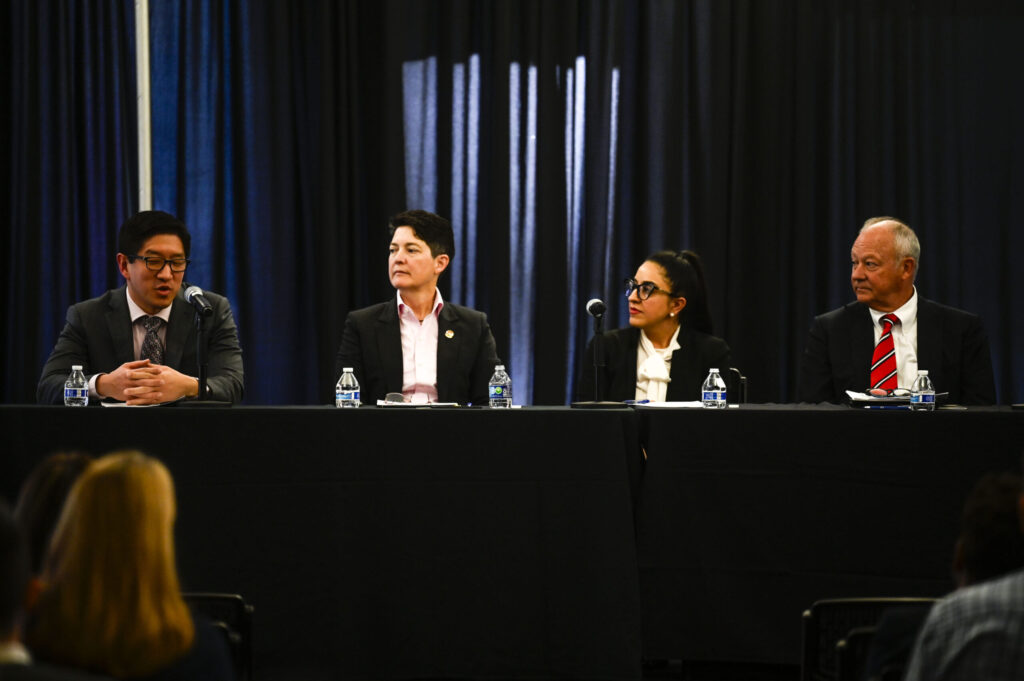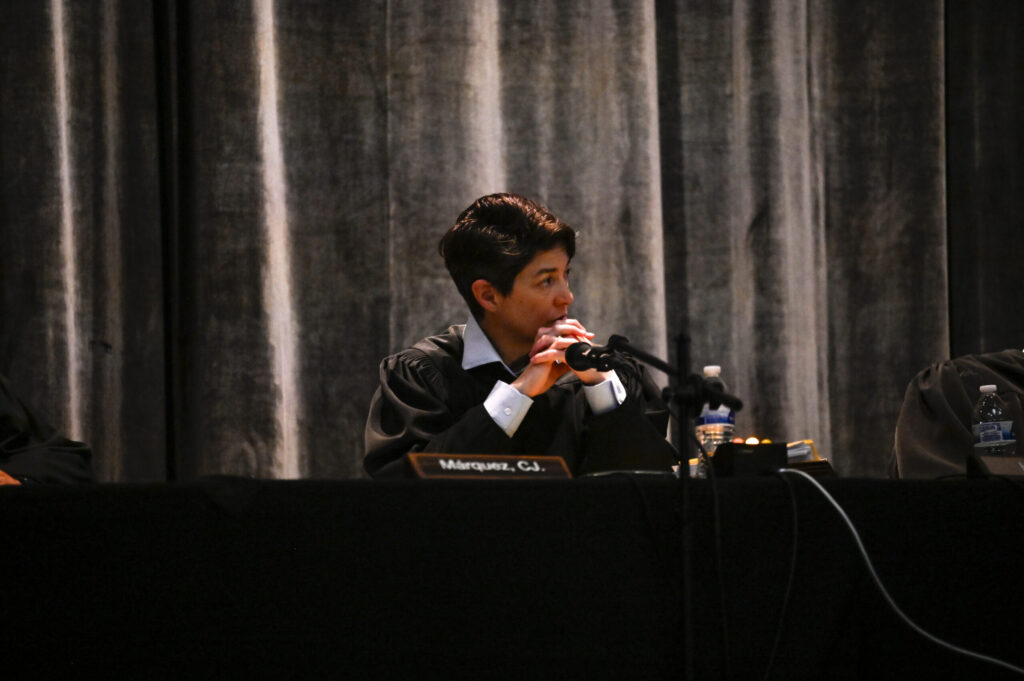Federal judge dismisses lawsuit from middle schoolers disciplined for sexual harassment
A federal judge last week dismissed claims from a pair of former eighth grade students who alleged their Elbert County charter school violated their rights by deviating from its policies and denying them due process while investigating possible sexual harassment.
The boys, identified as J.S. and C.G., attended Legacy Academy in Elizabeth during the 2022-2023 school year. Through their parents, they alleged they were falsely accused of misconduct and were improperly disciplined.
The lawsuit described a February 2023 incident in which a female student, wearing a short dress, allegedly bent over in front of the plaintiffs and exposed her buttocks. C.G. allegedly told J.S. to look elsewhere and J.S. allegedly chuckled.
Then-Principal Tambralla Thorn investigated the incident and concluded the female student violated the school’s dress code, but the boys’ response did not amount to sexual harassment. Thorn also found the boys were wrongly accused of maintaining a “screw list,” which the plaintiffs defined as “a list of attractive female classmates.” Finally, Thorn concluded a “teasing” statement by J.S. about a female student’s pimple did not merit punishment.
The plaintiffs alleged that following Thorn’s investigation, Dean of Students Laura Myers “imprisoned” the boys in her office, as did Vice Principal Tony Vruggink. The administrators did not report the sexual harassment allegations to the school district as described in the student handbook, and instead the school gave C.G. a detention and J.S. a suspension for sexual harassment.
At some point, Legacy fired Thorn allegedly for her refusal to impose discipline on the boys. Vruggink succeeded her as principal.
The plaintiffs filed suit initially in state court, but voluntarily dismissed their complaint in 2023. They pivoted to federal court, where they alleged Myers, Vruggink and Legacy committed breach of contract by failing to report the accusations against J.S. and C.G. to the district. Doing so, the plaintiffs argued, prevented the boys “from being vindicated as not committing sexual harassment.”
The lawsuit also alleged the defendants violated the boys’ constitutional right to due process by ignoring Thorn’s conclusions and failing to provide a fair and impartial investigation before imposing a punishment. The plaintiffs sought monetary damages, expungement of the boys’ disciplinary records and for the school to “fairly adjudicate” the accusations — even though the boys had since left the school.
In seeking to dismiss the lawsuit, the defendants took issue with the plaintiffs’ narrative of the facts. Documents submitted by both sides suggested C.G. and J.S. made inappropriate comments about girls’ bodies, that the reaction to the female student with a short dress was lewder than the plaintiffs depicted, and that the purported “screw list” was explicitly sex-oriented.
Nonetheless, the defendants argued the due process allegations were not viable and the procedures pertaining to sexual harassment in the student handbook did not constitute a “contract.”
“There are no specific promises in the Handbook however, that Legacy agreed to provide a particular service or outcome, take a particular action, or enforce violations in a particular manner,” wrote attorney Susan M. Stamm. “Moreover, there is no space for a representative of the school, the principal, the dean of students, or the Plaintiffs to sign the Acknowledgment page. In short then, Plaintiffs have not plausibly alleged that Legacy formed a contract with them.”
In a March 28 order, U.S. District Court Chief Judge Philip A. Brimmer agreed with the defendants. He noted the Colorado Supreme Court recently found a private university’s promise of a fair sexual misconduct investigation, coupled with specific procedures, could support a breach of contract claim. However, Brimmer believed the circumstances at Legacy were different, and the student handbook itself did not amount to a contract.
As for the due process claim, Brimmer faulted the plaintiffs for a lack of specificity about who imposed their punishments.
“Given plaintiffs’ failure to allege the role that Ms. Myers or Mr. Vruggink played in depriving J.S. and C.G. of their due process rights, the Court will dismiss the claims against both of these defendants,” Brimmer wrote.
Because the complaint did not reference any other employee who allegedly violated the students’ rights, Brimmer also dismissed their claim against the school itself.
The case is Sanders et al. v. Myers et al.













